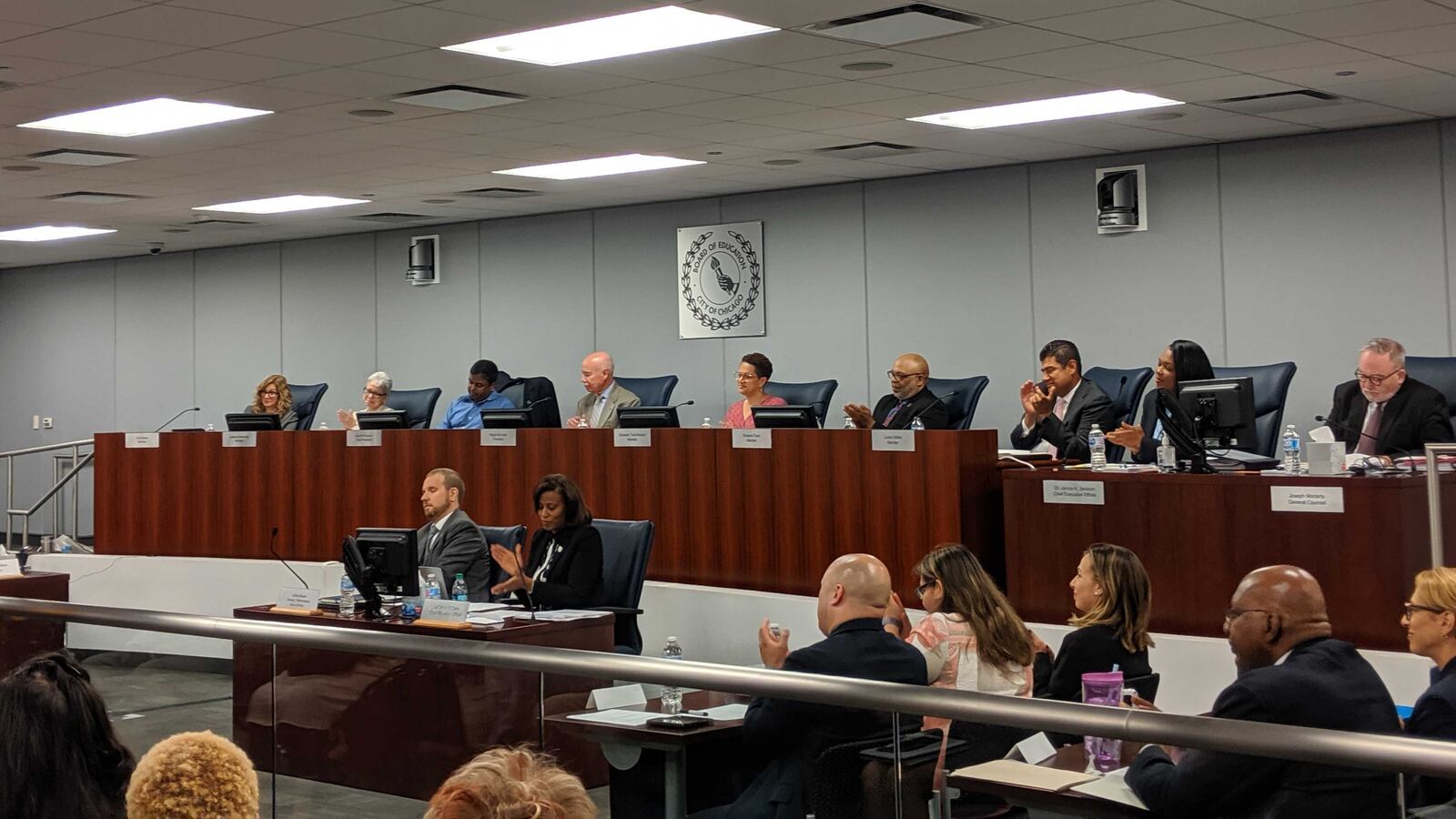At its first monthly meeting Wednesday, Chicago Mayor Lori Lightfoot’s newly appointed school board promised to change how the board does its business.
In opening remarks, board President Miguel Del Valle thanked Lightfoot, praised fellow board members, and urged them to not be a rubber-stamp board, and to debate and challenge each other.
Related: Lightfoot vows new Chicago school board will stop making so many decisions behind closed doors
To that point, he announced several changes to how board meetings are run, which he said would make meetings longer. Here are seven ways school board meetings could change.
- Meetings will include a period for board members to discuss public agenda items before they cast votes in closed session.
- Board members will vote earlier than before, after the public comment period and before they meet in executive session.
- New rules and policies scheduled for a board vote would have to be posted a month prior for public review and comment. This change will go for a board vote in July.
- Translation will be provided at every board meeting.
- The board will begin live streaming meetings starting next month.
- New board committees chaired by members will be established to focus on specific educational policy issues.
- The board will begin holding periodic board meetings in the community, outside the Loop, later in the day to engage more community members.
“We will attempt to strike a balance between deeper engagement and efficiency with the goal of increasing our transparency,” Del Valle said.
Related: Mayor Lori Lightfoot appoints parents, former grads, educators for new Chicago school board
When Lightfoot announced the new board in early June, she pledged that it would cease doing much of its business behind doors, referring to the board’s practice of long holding closed-door deliberations before voting on major decisions.
“The days where everything was done in executive session, and then they come out and take a vote, that’s over,” she said.
Del Valle said that the board won’t discuss public agenda items in closed session, but will still discuss privately issues related to attorney selection, real estate, discipline and personnel.


